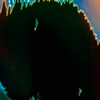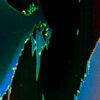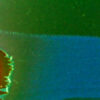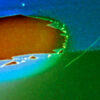An exciton consists
of the escaped negative
(electron)
and the positive hole
it left behind.


Sign in to Granta.com.
An exciton consists / of the escaped negative / (electron) / and the positive hole / it left behind.
An exciton consists
of the escaped negative
(electron)
and the positive hole
it left behind.


Sign in to Granta.com.

‘We meet at various points in the great swathes of the past that neither of us were alive to witness.’
Allen Bratton on a daytrip to a castle with his older boyfriend.

‘Listening to three white poets, whom I suspect are academics, talk about the state of poetry.’
Oluwaseun Olayiwola eavesdrops on an older generation.

‘I’d been dubious about his company at first.’
Sarah Moss on watching Shakespeare with her twelve-year-old son.

‘She didn’t trust us because, to her, tenants were like children.’
Kate Zambreno on negotiating with her older landlady.

‘A moment now swallowed in embarrassment, I asked a question only a young person might ask an older one.’
Lynne Tillman on trying to understand what makes a generation.
Rae Armantrout’s most recent books are Finalists, Conjure and Wobble. In 2010 her book Versed won the Pulitzer Prize for Poetry and the National Book Critics Circle Award. She is the current judge of the Yale Younger Poets Prize.
Photograph © Andrea-Augé
‘When you wake up, / you will remember nothing of this.’
‘Curses’, ‘Familiar Ground’ and ‘Lions’ by Rae Armantrout.
‘Music needs silence / more than silence needs music.’ New poetry by Rae Armantrout.
‘Where on earth is the happy ending? Kansas is burning. All things are finite. ‘Love,’ I say feebly. The hole finds this amusing.’

The copyright to all contents of this site is held either by Granta or by the individual authors, and none of the material may be used elsewhere without written permission. For reprint enquiries, contact us.